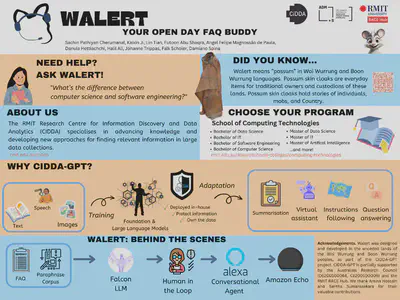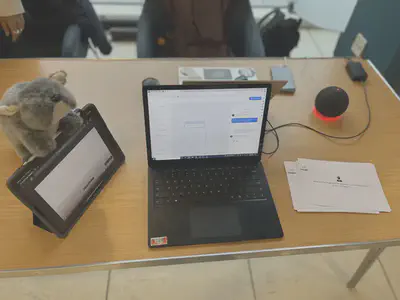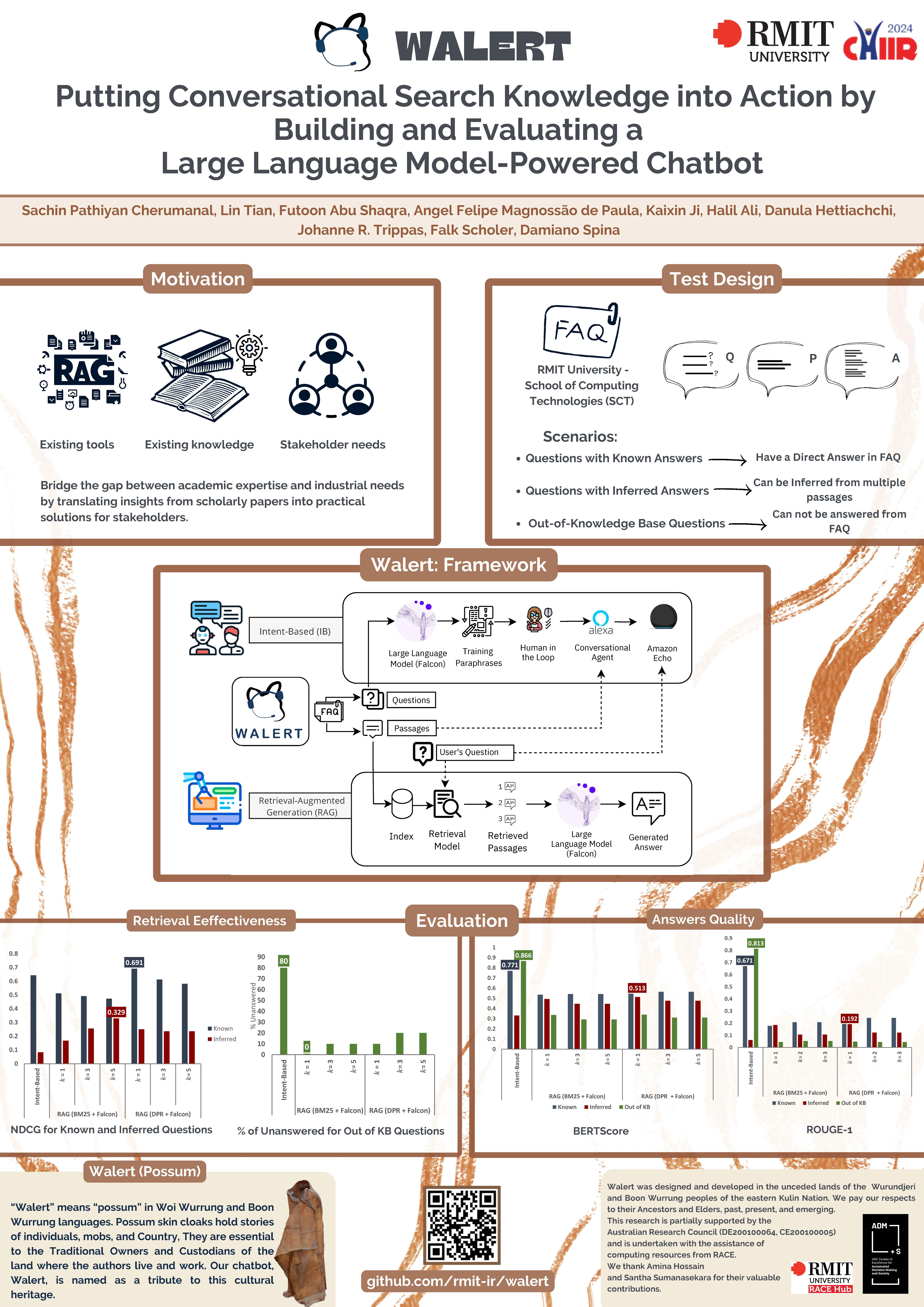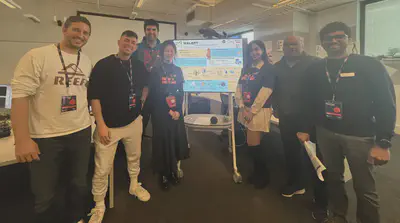
Why?
We wanted to combine the diverse expertise we have within the Interaction, Technology, and Information discipline at the RMIT School of Computing Technologies (SCT) to demonstrate ourselves (and to learn on doing so) how far we can get in designing and deploying our in-house version of a conversational LLM. To make this long-term goal more reachable, we identified a more tangible milestone: can we deploy our own LLM to assist us to build a chatbot for RMIT Open Day? We considered a manually curated Frequently Asked Questions document from the School of Computing Technologies (SCT) as “sensitive data”, and we challenged ourselves to see how we can use our internally deployed LLM to create training phrases (and alternative paraphrases of the correct answers in the FAQ), to create Walert, a conversational agent that answers questions about SCT programs. We also experimented with Retrieval-Augmented Generation (RAG) to better understand how to evaluate and compare the effectiveness of different designs of conversational agents, i.e., intent-based vs. RAG.

Walert at ACM CHIIR 2024
Our team members Sachin and Futoon presented Walert at CHIIR'24, the 2024 ACM SIGIR Conference on Human Information Interaction and Retrieval.


The Team
The Walert team consists of HDR students, research fellows, and members of ADM+S and RMIT CIDDA (now members of the CHAI STEM Leading Centre), with experience in information access and retrieval, conversational user interfaces, natural language processing, software engineering, and machine learning: Sachin Pathiyan Cherumanal, Kaixin Ji, Lin Tian, Futoon Abu Shaqra, Angel Felipe Magnossão de Paula, Danula Hettiachchi, Halil Ali, Johanne Trippas, Falk Scholer, and Damiano Spina.
